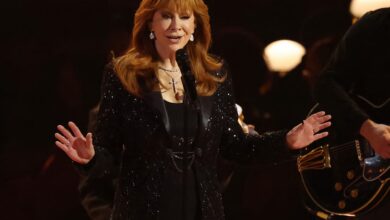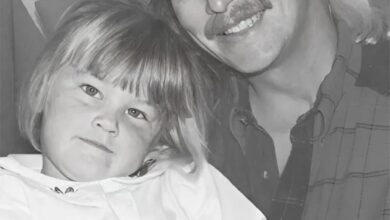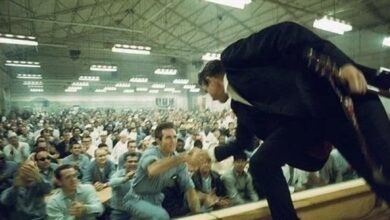How a 1955 Ballad Became Timeless: The Righteous Brothers’ Take on “Unchained Melody” Still Leaves Us Speechless
Ever wondered how a 1950s film theme became one of the most emotionally resonant love songs ever? “Unchained Melody” originated in 1955 as the haunting score to the prison film Unchained, composed by Alex North with lyrics by Hy Zaret. The song wasn’t even meant to be a hit—it was just part of the movie’s atmosphere. But destiny had other plans, and its lyrical yearning struck a universal chord.
By the mid‑50s, multiple versions of “Unchained Melody” were climbing the charts. Les Baxter’s orchestral take, Al Hibbler’s vocal rendition, Roy Hamilton’s soulful version—it was everywhere at once. For a time, it held the record for the most simultaneous charting versions in both the U.S. and the U.K., a rare pop-music phenomenon that underscored its cross-genre appeal.
Then came Bobby Hatfield’s 1965 interpretation with The Righteous Brothers—a moment of pure vocal artistry. Producer Phil Spector’s legendary “Wall of Sound” gave the track an epic backdrop, but it was Hatfield’s soaring tenor—culminating in that iconic high falsetto near the end—that lit up the song and cemented it as the definitive version.
Interestingly, the recording was initially a B‑side. The A‑side “Hung on You” was supposed to be the star, but radio DJs flipped the record and discovered a hidden gem. Spector was reportedly furious at the unexpected popularity, but nothing could stop the emotional wave Hatfield unleashed—by summer it was a top‑five hit in the U.S. and a top‑15 success in the U.K.
Hatfield’s vocal choices also revamped the melody—especially that final, climactic line “I need your love”. It wasn’t in the original arrangement; he improvised it during the session, and it changed the song forever. Bill Medley later said he suggested no more takes—what they captured already hit perfection.
Over the decades, the song’s status only grew. In 1990, it made a cinematic resurgence when featured in Ghost, the blockbuster romance with Patrick Swayze and Demi Moore. The re-issue topped charts, again in the U.K. and Europe, and found new generations melting at that piano-led ballad echoing through a pottery shop.
“Unchained Melody” now boasts over 1,500 recorded versions—one of the most covered songs of the twentieth century. Artists ranging from Elvis Presley to Willie Nelson have attempted it, but none dethrone Hatfield’s version. According to music historians, his take is the ultimate standard, combining technical mastery with raw emotional vulnerability.
The Righteous Brothers were trailblazers of “blue-eyed soul”, white singers channeling Gospel-style intensity. In a racially tense early-60s America, their voices blurred cultural lines. Alongside soul and R&B acts, they bridged audiences, and “Unchained Melody” became a universal love anthem precisely because of that shared emotional thread.
Bill Medley, now in his 80s, has reflected on that era, revealing how deeply they poured their souls into each recording, often guided by Spector’s demanding perfectionism. Hatfield’s voice rose to near operatic heights—an impressive feat given it soared without excessive theatricality, maintaining humility amid grandeur.
Beyond charts and accolades, the song found life in personal milestones: weddings, funerals, long-distance letters. Its lyrics—“I need your love”—speak universally. Its melody winds around the heart, offering solace and longing. “Unchained Melody” became more than a song—it became a lifelong companion to human emotion.
It’s also fascinating to recognize how the Righteous Brothers embraced their earlier days. Bill Medley eventually produced the duo’s work and helped shape their sound. After Hatfield’s passing in 2003, Medley kept the legacy alive, guiding new lineups and ensuring that “Unchained Melody” remained part of their living performance catalogue.
In recent years, new artists have revived the tune. In 2020, Orville Peck and Paul Cauthen released a respectful cover, raising funds for MusiCares. Their version, stripped-down yet respectful, reminded listeners that the song’s emotional power transcends decades and can serve philanthropic causes.
Today, “Unchained Melody” remains a timeless classic. Streaming and YouTube views continue to climb—Hatfield’s 1965 take is still their most watched performance online, affirming its status as a vocal masterclass as much now as it was sixty years ago.
Listening to the song now, you can still hear the undercurrent of 1950s film drama, but Hatfield’s voice reshapes it into intimate confession. That blend of cinematic sweep and personal sincerity is why the song never feels old—it just feels profoundly human.
What surprises many is how close the song came to obscurity. If Phil Spector had insisted on promoting the intended A-side, or if Hatfield hadn’t improvised his vocal twist, “Unchained Melody” might have remained buried. Instead, the song escaped its chains and captured hearts worldwide.
Whether you first heard it on vinyl, through the Ghost soundtrack, or at a wedding, the emotional impact is consistent. “Unchained Melody” remains both giant and gentle—an imposing piece of musical architecture carried on a whisper. Its true power lies in its subtlety.
And that, perhaps, is the real magic—an orchestral swell that never overshadows the lone voice. The piano, the strings—they support but never dominate. It always feels like Hatfield is looking straight at you, singing only to you. That’s why no matter how many covers come after, the original holds its throne.



